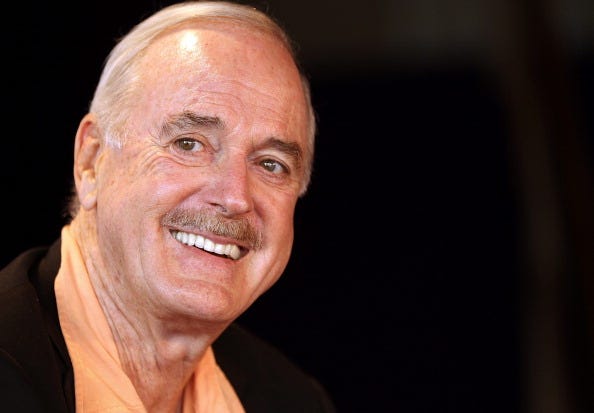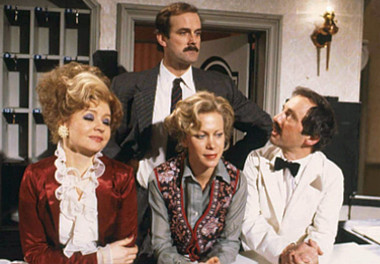What links the 1970s sitcom Fawlty Towers and the statue of a 17th-century slave trader?
Both have been forcibly removed from view as the UK gets caught up in an energised debate raging in the US and Europe on the representation of colonisation, enslavement and racial prejudice.
Their treatment is debatable.
On June 11, UKTV, a BBC-owned streaming service, removed an episode of Fawlty Towers from its list of available offerings. The Guardian quotes a UKTV spokesperson acknowledging that it’s under review because the episode “contains racial slurs”.
On June 7, protesters in Bristol in south-west England toppled into the harbour a statue of Edward Colston, whose Royal African Company shipped about 100,000 enslaved people from West Africa to the Americas and the Caribbean. The statue has since been retrieved from the water, preparatory to finding a new home in a museum. Both prime minister Boris Johnson and opposition leader Keir Starmer have criticised the way it was removed.
They have a point. Vandalism and public disorder cannot be condoned as a solution to anything, not even as a way to correct the representation of the British empire, slavery and racism. Colston’s statue may have been a visible symbol of an older racial order but it’s not appropriate to remove it by force.
Equally, it’s inappropriate, ineffectual, even laughable, to link an episode of Fawlty Towers to the wider trans-Atlantic call for racial justice. The episode in question, which was first broadcast in 1975, features hotel owner Basil Fawlty’s shock at being treated in hospital by a black doctor. It also has a slightly senile army officer, Major Gowen, who likes to talk about cricket scores and makes racist remarks about the West Indies cricket team. Some broadcasters had reportedly been editing out the latter remarks anyway, which makes one wonder why TV executives now thought it necessary to conduct a reappraisal of content.

John Cleese, who starred as Basil Fawlty, described the move as “stupid”. Speaking from his home in Los Angeles, Cleese said the episode was a critique of racist attitudes rather than an endorsement of them. “One of the things I’ve learned in the last 180 years is that people have very different senses of humour”, he said. “Some of them understand that if you put nonsense words into the mouth of someone you want to make fun of you’re not broadcasting their views, you’re making fun of them”.
There has been wider criticism too of the attempt by TV executives to be “woke”.
Commentator Ash Sarkar told the BBC that such moves are “a complete distraction”. She added (clip starts at 2:53:16): “I’ve been covering the Black Lives Matter protests in this country and I can guarantee you not one placard, not one T-shirt, not one chant mentioned Basil Fawlty or Major Gowen”.
Sarkar’s diagnosis, shared by Mathew Parris, the Times London columnist whose views might be considered a tad more conservative, was as follows: “This is the result of an institution becoming panicky and doing the bare minimum rather than thinking in a deeper sense about how it can diversify its own organisation”.
Parris, who called UKTV’s decision “silly”, said “the fault here is not of woke people”.
1:The banning of TV shows just seems like liberals trying to annoy people. 2: Given that the UK intelligentsia/education spent much of the last 200 years erasing/downplaying the contribution of the enslaved to ending slavery I can’t take the ‘erasing’ history line serious https://t.co/wk5GketHwC
– Akala (@akalamusic) June 12, 2020
It’s a point well made. This is a parody of the authentic change being demanded by anti-racism protesters.
The attempt to remove an episode of Fawlty Towers shows how symbolic change — in word and deed — can become utterly absurd.


